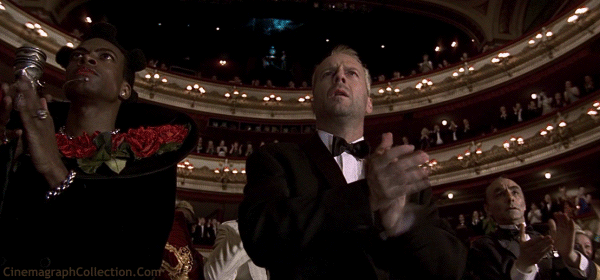[quote=“Mindysan33, post:82, topic:78097, full:true”]
While that’s true, the “need” to ramp up security since 9/11 has changed things somewhat. If it went back to just walking through a metal detector, or whatever more lax measures were in place back then, that would be one thing. Now, however, given the realities we live with, privatizing it might make things worse. Until we can go back to pre-9/11 security measures, I would worry about a private security company taking over that is eager to show how hard they are on security. [/quote]
The first issue is the competence of the TSA – and there’s no reason to believe some hypothetical, fresh organization would do any better – when on it’s best day it couldn’t find the dummy bombs that auditors would plant. We spend a lot for the show of security. And not just the cost of the TSA itself, but the cost of airlines in missed flights and lost baggage, the cost to airport vendors (airports before the TSA basically being an excuse to have a mall), the cost to our foreign allies who must also implement this nonsense on their end if a flight will travel into the U.S. airspace, the cost of lost tourist money after it fell off dramatically, the cost in lost time to fliers (especially frequent business travelers), down to the cost of lost pocket knives and the waste of buying 4 and 8 oz bottles for liquids that are never sold in that amount. It is one thing to say, “this pain is necessary for security,” and another to say, "this pain is necessary because we have no better ideas for how to look like we’re managing an unmanageable situation.
Second, security never secures people. Security secures property. That’s why it’s not called “safety” or “protection”. The security makes sure (in theory, if not practice) that a bomb doesn’t make it onto an airplane and turn it into a meteor, or that armed men cannot turn it into a missile. But security can only operate by distributing the risk to people elsewhere, to wit, those mile-long security lines. And as the Belgian bombing showed, that can be just as attractive a target as a plane or a building. Nor is this even a problem with airports: pubs, buses, restaurants, theaters, anywhere people gather can be and has been a target of terrorist attacks. We cannot armor and defend all people who are regularly at risk. We can only encourage extremists to pick a softer target, preferably one which is also smaller. In other words, we want to reduce their killing efficiency to be no more than a bad bus accident. And so far we’ve done that everywhere except airports.
Third, I doubt very much that the risk is somehow more grave today than in the past. U.S. planes were being hijacked and U.S. locations bombed left and right in the 70s. Elsewhere bombings continued well into the 90s. Modern security has helped a little, but not much. What has helped is having fewer angry nutjobs with the skills and motivation to bomb us. And even if these are exceptional times, none of the three well-known, would-be bombers in post-9/11 air travel were caught in security. They were caught by passengers who noticed they were trying to light their shoes, underwear, etc. So far, the TSA has never been able to claim that their standard procedures – or even luck on their part – led them to foil an attempted attack.
Finally, I cannot think of any way that private security would be somehow worse than this mess. TSA agents are already unfriendly, perform unreliably, are completely ineffective at their stated task at their best, are generally unaccountable, and are thoroughly protected from consequences even if caught in some act of malice or stupidity. You cannot get any worse than what we have unless you armed them and indemnified them for shooting people. Any other change can only be an improvement.
